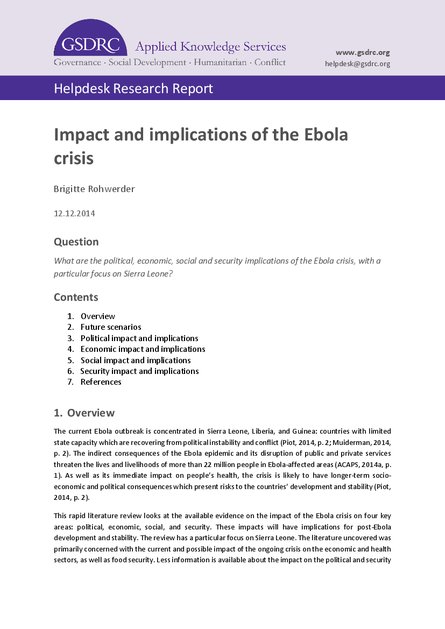
The current Ebola outbreak is concentrated in Sierra Leone, Liberia, and Guinea: countries with limited state capacity which are recovering from political instability and conflict (Piot, 2014, p. 2; Muiderman, 2014, p. 2). The indirect consequences of the Ebola epidemic and its disruption of public and private services threaten the lives and livelihoods of more than 22 million people in Ebola-affected areas (ACAPS, 2014a, p. 1). As well as its immediate impact on people’s health, the crisis is likely to have longer-term socioeconomic and political consequences which present risks to the countries’ development and stability,
